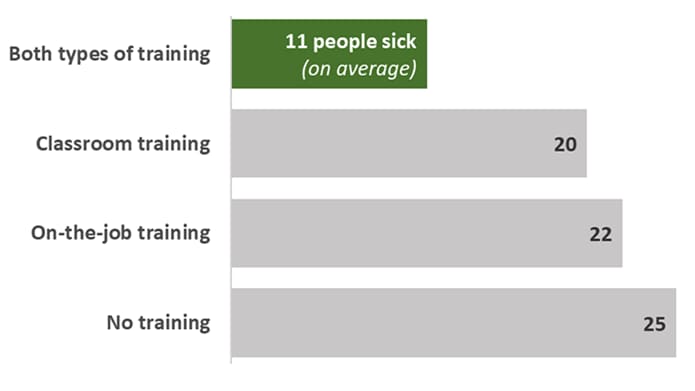Purpose
Explore the impact of our work to improve investigations of foodborne illness outbreaks. We provide investigation resources, training, and a surveillance system to advance use of environmental assessments as part of outbreak investigations.

Highlights
- We created resources to help programs conduct environmental assessments as part of outbreak investigations. These tools help programs identify and address the underlying root causes and factors that contribute to outbreaks.
- We created training resources on investigations, including conducting environmental assessments, identifying contributing factors, and using system theory.
- We established the National Environmental Assessment Reporting System (NEARS). NEARS provides a platform for reporting environmental assessment data from foodborne illness outbreak investigations.
Impact
NEARS helps jurisdictions report and use their environmental assessment data from outbreak investigations. NEARS captures environmental assessment data from outbreak investigations that were not regularly collected before. NEARS complements CDC's Foodborne Disease Outbreak Surveillance System, which collects epidemiologic and laboratory data from investigations. Since it was created:
- More than 50 state, local, and territorial health departments joined NEARS.
- They submitted data for 1,200 outbreaks linked with retail food establishments.
- CDC provided environmental assessment training to all NEARS participants.
- NEARS findings were shared in many articles and plain language summaries.
NEARS in action: Findings on norovirus outbreaks
NEARS found that norovirus outbreaks were smaller and shorter when restaurants had certain practices. Norovirus outbreaks had fewer sick people when restaurants provided training on food safety. This finding suggests restaurants can reduce the impact of outbreaks through the following actions:
- Providing food safety training for managers and food workers
- Having managers certified in food safety
- Having cleaning policies for surfaces where food is prepared

